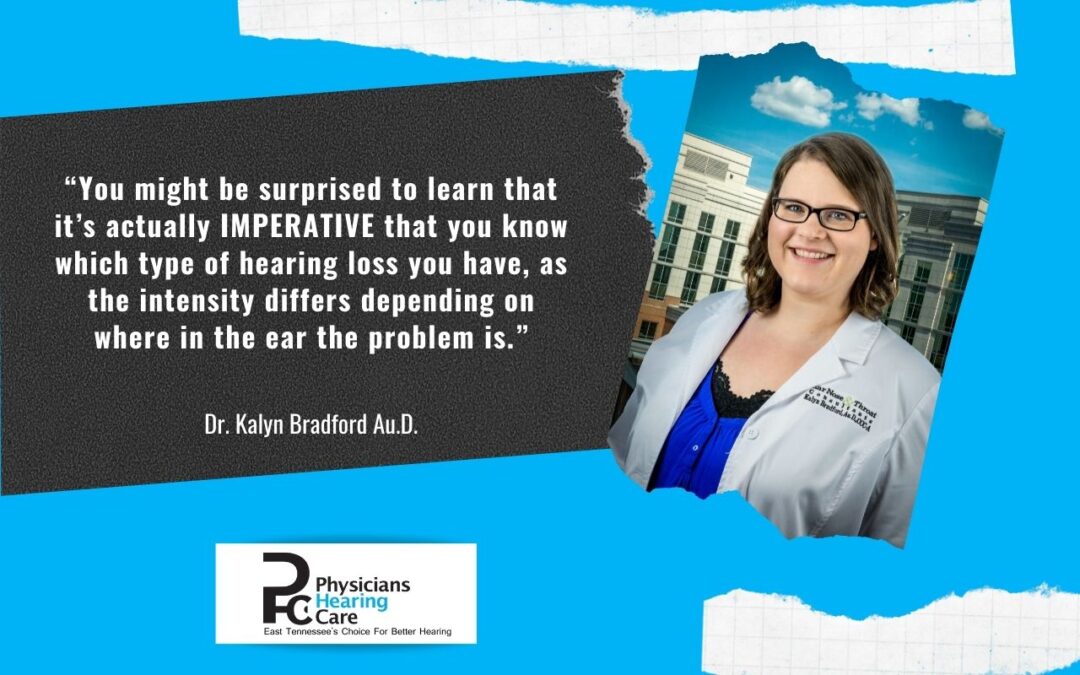OK, so what does it matter that there’s different types of hearing loss – if you can’t hear, you can’t hear, right?
Well, wrong. You might be surprised to learn that it’s actually IMPERATIVE that you know which type of hearing loss you have, as the intensity differs depending on where in the ear the problem is.
Did we also mention that by knowing exactly what type of hearing loss you have, we’re able to treat you quicker, more effectively, and with as little inconvenience as possible?
There are 3 different types of hearing loss; here’s what you need to know…
(In easy-to-understand English of course)
1 – Sensorineural
By far the most common form, this type of hearing loss is irreversible, but effectively treatable with hearing aids.
Causes include: Exposure to frequent loud noises; an infection; head trauma; or even just age or genetics
Symptoms include: Muffled hearing and tinnitus, as well as struggling with the basic comprehension of speech when you’re not face to face with the speaker
Problem points: Cochlea, or the little hair-like hearing nerve pathways in the inner ear (these are the things that carry all the information about loudness and clarity of sounds to your brain)
What should you do if you have Sensorineural hearing loss?
Firstly, accepting this problem isn’t going to go away by itself is the first thing you need to do. Once you’ve done that, pick up the phone and dial 615-920-7000 – that’s our number and we’ll book you in for an appointment right away. We’ll do a few tests and then, depending on the results, we’ll guide you through your options, which could include a hearing aids demonstration.
2 – Conductive
Still a relatively common form of hearing loss, the good news about this one is that quick action to treat it can reverse the damage.
Causes include: Fluid in the middle ear (usually from a cold); ear infections, perforated eardrum, or malformation of outer ear/ear canal/middle ear
Symptoms include: Build-up of earwax; high volumes appear lower; accumulation of fluid in the middle ear that can lead to soreness; abnormal bone growth (rare)
Problem points: The outer ear, eardrum, and the little bones in the inner ear
What should you do if you have Conductive hearing loss?
You can start by helping yourself by investing in an ear cleanser or wax remover and actively de-blocking your ear manually. If, after doing so you feel the problem still hasn’t gone away, we’re here to help you. Dial 615-920-7000 and we’ll organize an appointment for you as soon as possible. Usually, we’ll be able to sort out the problem there and then – problem solved.
3 – Mixed
As the name suggests, this type of hearing loss combines the causes and symptoms of both Sensorineural and Conductive hearing loss.
Most commonly occurring when the ear is affected by a trauma or infection, the symptoms work on a vice versa basis, for example, a conductive hearing loss symptom could be the result of a Sensorineural cause.
What should you do if you have mixed hearing loss?
For immediate convenience, adopt the Conductive approach of cleansing or de-waxing your ear; you might find your symptoms automatically decrease.
If, however, you still have pain more aligned with Sensorineural symptoms, call us at 615-920-7000 and get yourself an appointment, as you might need hearing aids.
Whatever The Type, Always Remember…
Audiologists exist to make it easier for you to identify and treat your hearing loss, so instead of trying to fix it by yourself, grant yourself the peace of mind that comes with ‘being on the safe side’ and book yourself an appointment with us here at PHC Tennessee.





